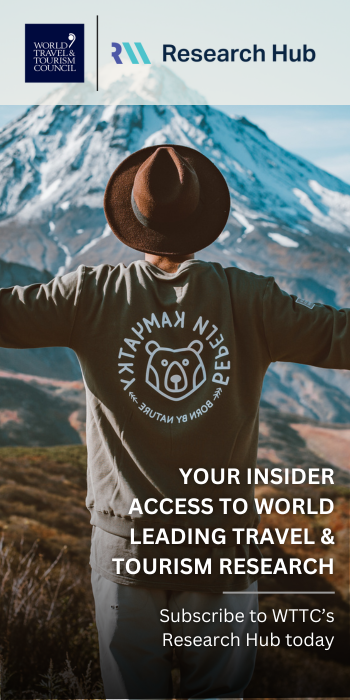Human trafficking: Hidden toll of the pandemic

The Covid-19 pandemic shook the world to its core, exposing and deepening pre-existing vulnerabilities across societies. For victims of human trafficking, these vulnerabilities have amplified, leading to an alarming rise in exploitation. While the Travel & Tourism sector was significantly disrupted during the pandemic, its role in recovery offers a crucial opportunity to combat trafficking and address systemic inequalities
Sign in to access actionable insights
The Covid-19 pandemic shook the world to its core, exposing and deepening pre-existing vulnerabilities across societies. For victims of human trafficking, these vulnerabilities have amplified, leading to an alarming rise in exploitation. While the Travel & Tourism sector was significantly disrupted during the pandemic, its role in recovery offers a crucial opportunity to combat trafficking and address systemic inequalities
How Covid-19 exacerbated vulnerabilities
The economic and social consequences of Covid-19 have been profound, with the pandemic disproportionately affecting the most vulnerable. The International Monetary Fund reported a 4.4% global economic contraction in 2020, plunging millions into poverty. This economic fallout created fertile ground for human traffickers to exploit individuals desperate for income, shelter, or food.
The closure of schools further exacerbated risks for children. Many were left isolated at home and spent more time online, where traffickers increasingly operate. The National Centre for Missing and Exploited Children noted a sharp rise in reports of online exploitation during the pandemic, doubling from 2 million to 4.2 million between March and April 2020 alone.
The shift towards a "high-tech, low-touch" environment in the Travel & Tourism sector also presented challenges. Automated check-ins and reduced staff interactions, aimed at minimising contact during the pandemic, inadvertently decreased opportunities for identifying potential trafficking situations. This decline in human oversight underscores the need for targeted training and technological solutions to fill the gap.
The Tourism sector is uniquely positioned to address the vulnerabilities exposed during the pandemic era. Through thoughtful strategies, the industry can play a pivotal role in not only recovering economically but also fostering social equity and tackling human trafficking.
Enhancing identification and oversight
The pandemic highlighted the need for innovation in identifying and preventing trafficking. The sector must invest in both technology and training to enhance vigilance. For example, initiatives like Emirates’ training programmes for cabin crew and security personnel serve as a model. These employees are trained to identify suspicious behaviours and spot signs of trafficking, even within the constraints of a reduced-contact environment.
Partnerships with organisations such as ECPAT International and Polaris can also strengthen industry-wide approaches to using technology responsibly, ensuring that it becomes a tool for prevention rather than an avenue for exploitation.
The pandemic also underscored the critical role of addressing systemic inequalities in reducing trafficking risks. Poverty, unemployment, and lack of education are key drivers that traffickers exploit. By promoting inclusive tourism, the sector can help create jobs, support local communities, and reduce vulnerabilities.
Socially responsible travel initiatives, such as those by Marriott and Hilton, exemplify this approach. Marriott’s job readiness programmes for survivors of trafficking and Hilton’s ethical supply chain practices demonstrate how tourism can generate equitable opportunities while maintaining robust anti-trafficking measures.
It reinforced the need for collaboration between governments, the private sector, and civil society. Tourism organisations have the reach and resources to influence public policy, encourage multi-stakeholder partnerships, and advocate for stronger anti-trafficking laws.
Integrating anti-trafficking into sustainability strategies
The push for sustainability in tourism post-pandemic provides an opportunity to incorporate anti-trafficking efforts into broader corporate social responsibility (CSR) frameworks. Human rights due diligence, ethical recruitment practices, and survivor support programmes should become integral to sustainability strategies.
Airbnb’s collaboration with Polaris, which combines technological expertise with community engagement, showcases how CSR initiatives can align with anti-trafficking goals. By integrating such efforts into their sustainability agendas, tourism organisations can contribute to a holistic recovery that prioritises human dignity alongside environmental and economic considerations.
The pandemic highlighted the interconnection between public health crises, economic inequality, and human rights violations. As travel resumes, the Tourism sector has an unparalleled opportunity to redefine its role as a protector of vulnerable populations. By investing in training, technology, and community-based solutions, tourism can mitigate trafficking risks while fostering a more equitable and resilient future. The WTTC’s call for collaboration across its members and stakeholders is a reminder that the journey towards recovery is not just about rebuilding businesses but about safeguarding lives.

















